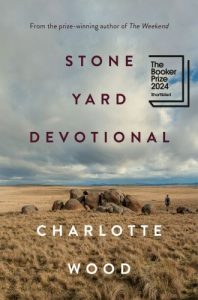
Review by Kevin Brown
Many people complain that books set in the LGBTQ+ community focus only on the suffering, a complaint that gets leveled at most books by and about minorities, actually. Eloghosa Osunde’s novel doesn’t take that approach at all. As Akin, a musician, says near the end of the book, “Sometimes everything is tall and scary. It’s valid, and true, and very difficult to live with, but fear doesn’t get to decide for us. We get the last say on what we think is worth the risk. I think love is. I think care is.” This novel is about love and care among a group of friends who make meaningful lives out of some difficult circumstances.
Osunde helpfully provides a cast of characters at the beginning of the novel, as each section focuses on different relationships, both romantic and familial (though the familial is often in connection to the romantic, as some parents are accepting, while others aren’t). There are at least six different romantic relationships, and Osunde often provides back stories for each of those characters, especially when they involve parents who shape their children, for good and ill. While Nigeria outlaws same-sex relationships, Osunde’s characters don’t concern themselves with laws, as they’re more focused on finding family, whether with their biological ones or their found ones.
The novel concludes with a party, primarily to celebrate Maro and Jekwe’s wedding, along with Akin’s album release, but there is a sad undertone, given that people will probably be going in different directions after it’s over. However, just before the novel concludes, Awele, a writer, makes notes for what could be the beginning of an essay, in which she writes about the people she has formed a community with: “You taught me that wounds are not the only things we can respond to.” These characters find themselves through dealing with some wounds, but they have mostly shaped themselves and one another through love and care, which is the real cause for celebration.
Necessary Fiction by Eloghosa Osunde. Riverhead Books, July 2025.








